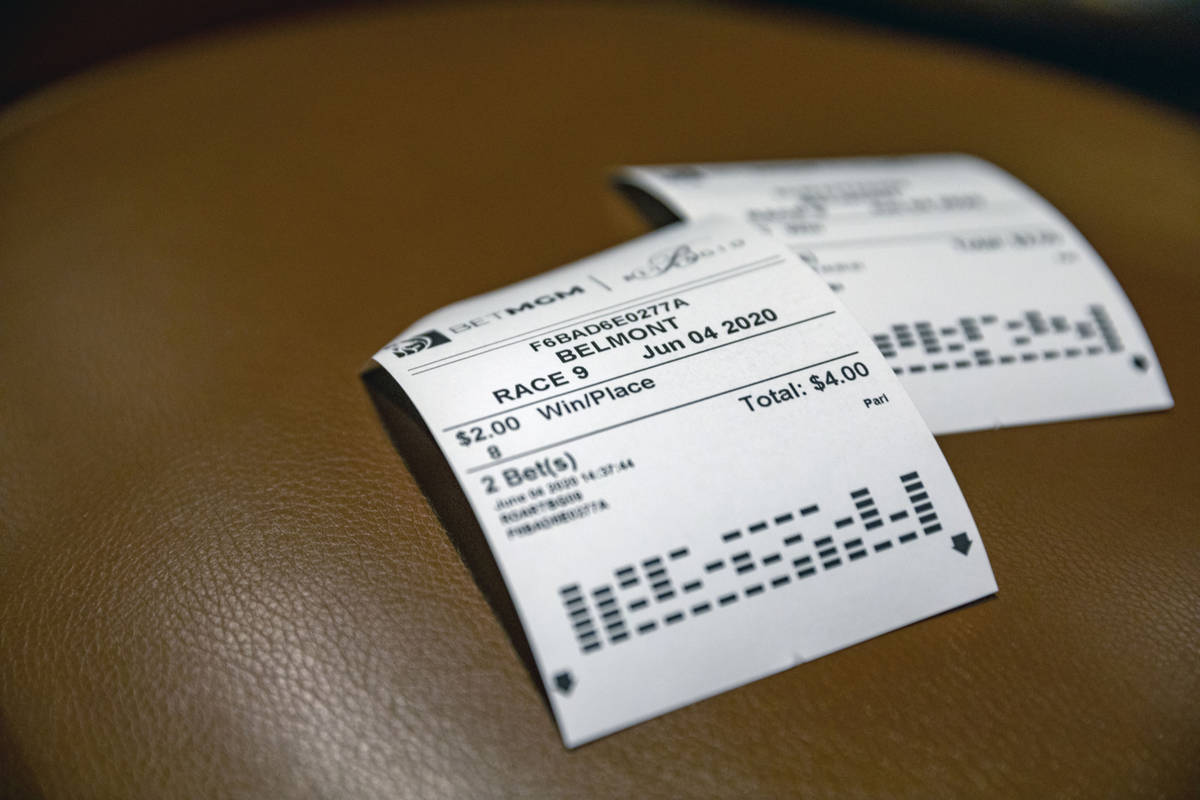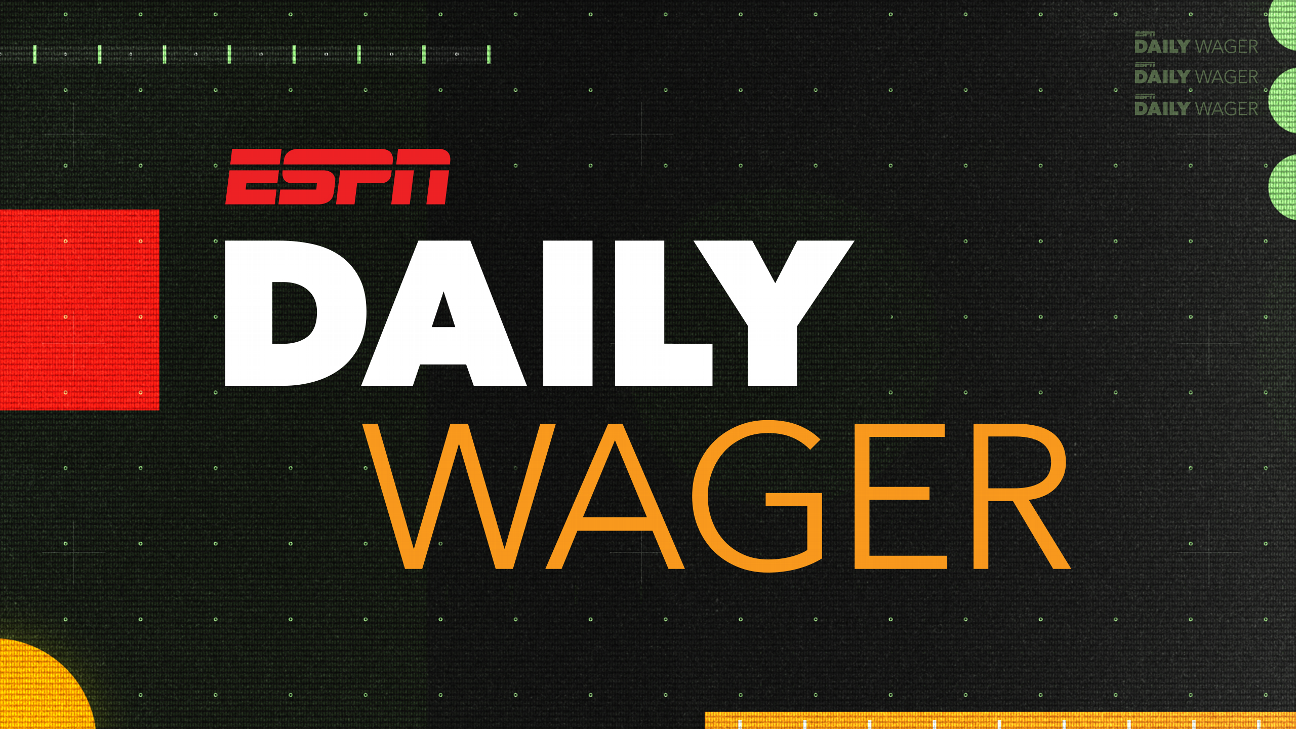Worst Bets In History
- Worst Bets In History
- Worst Bets In History In America
- Worst Bets In History Since
- Worst Bets In History Yahoo
Hockey 1,000-to-1 1980 Winter Olympics. Do you believe in gambling miracles??? The Super Bowl has betting odds on every facet of the game, and it is not immune to bad beats all over the board. The beats go two ways also. Worst betting bad beats in Super Bowl history 1/28. George and Eric discuss their favorite future bets for the 2020 season (5:32). They run through their favorite Week 1 bets (14:25). Week 3 games of the week (40:19). George and Eric's Lock of the Week. Super Bowl V: Cowboys (+2.5) vs. Blunder Bowl (Miami, 1971) The then Baltimore Colts faced. Free nba basketball team ats trends and splits in simple, easy to read tables. This page tracks all games results.
As any bettor knows, bad beats are the constant Sword of Damocles that hangs over the heads of professionals and amateurs alike.
They’re inevitable, they’re always newsworthy, and they usually sting like hell.
But the 2020 Presidential election is easily the worst one ever.
It is the MOABB, and the inevitability of it was ultimately the one thing that kept us from actually putting money on the outright election winner odds.

Frankly, we saw no way that any such bet could be paid out in good faith.
And, of course, we were right.
When Vegas online sportsbooks started giving Joe Biden backers their winnings a week ago, many bettors cried foul. And for good reason:
The election isn’t over.
Joe Biden does not become “President-elect Joe Biden” until January 6, when the states’ electoral votes are formally recognized and tallied in the US Senate.
Of course, in past elections, this was a moot point (2000 and its now-far-less-infamous hanging chads notwithstanding). The winner was easy to identify, and there was no compelling data to doubt the results.
Not so in 2020, which we all saw coming and which seems so utterly chaotic by absolutely intentional design.
For the statistically literate, the true bipartisan, or just those with a sense of propriety about the fairness of the process, the 2020 Presidential election is an unprecedented example of almost blindingly obvious, blatant fraud.
Of course, bettors are – by and large – statistically oriented folks, and numbers don’t lie. People lie, the aggregators of those numbers lie, but the numbers themselves do not.
Now, whether or not you believe there was enough fraud to change the outcome of the 2020 general and give the win to Basement Joe is irrelevant. There is – at the very least – enough smoke to merit looking for the fire.
Again, just take a look at the stats.
In four crucial swing states, the vote count was halted in a suspiciously coordinated fashion with The Donald up bigly across the board.
We peons were told that the count would resume in the morning. Poll watchers were sent home, the news media stopped covering the sites, and the entire country went to bed believing that the incumbent had built an insurmountable lead.
But upon waking, the country was welcomed with a series of shockers – four for four! – that saw Biden leapfrog Trump with unheard of gains in the wee hours.
You know, those same hours when poll watchers – and every voter in America – were told there would be no more counting, thank you, and goodnight.
That alone is a situational and statistical double whammy worthy of investigation, and no MSM outlet is willing to even float the question. Their guy won. Who cares if there was a historically awful pass interference call that materially altered the outcome?

Get over it, snowflake.
But many people do care. Millions and millions and millions of them.
Of course, there are also other compelling stats that are worth assessing. Take this shocking reveal:
That’s right: Joe Biden won the fewest counties in US history – roughly half of the counties Barack Obama won in 2008.
Further, Biden lost Ohio, Florida, and Iowa, which no winner ever has. He also lost 18 of 19 so-called Bellwether Counties, which previously was a sure-fire 0-fer.
On top of that, in a similar bad beat (for books and not bettors this time), Biden’s party simultaneously lost all 27 of the 27 US House elections rated by mainstream polling firms and pundits as “toss-ups.”
Yet this candidate – who barely campaigned at all – somehow managed to win the most votes in US history by a whopping seven million tallies and outperformed the most “popular” candidate of the last 50 years, media darling Barry Soetero, by 12 million votes.
That is the kind of underdog victory that would make even Tom Brady blush.

In other words, it warrants skepticism regardless of where you stand on the political divide.
Naturally, there are other developments that most people aren’t aware of due to their various media bubbles and a complicit cabal of talking heads unwilling to report on anything of substance.
You might catch the impromptu Samsonite ad in Georgia (if YouTube doesn’t censor it first) or randomly stumble upon that little chestnut that is the Maricopa County Board of Supervisors defying a legislative subpoena to turn over their discredited Dominion voting machines.
Worst Bets In History
You know, the same machines that, in Michigan, were independently audited and proven capable of altering election outcomes in the software itself.
By explicit design.
That’s why they use Dominion machines in Venezuela, where 90% of the populace routinely votes for mass starvation and crippling poverty.
These should all be red flags to anyone who cares about quaint notions like “democracy” and the now-apparent lie that “every vote matters.”
After all, if a large minority (or an actual majority) of US citizens no longer believes in the security of free elections, there might be bigger issue than who’s in charge of the failing state.
That’s a problem for everyone, whether or not your guy wears the crown this time around.
But back to measurable statistics, since outright subversion of due process doesn’t seem to get many hackles adequately up:
Yes, you read that correctly: 212 million registered voters, 66.3% turnout, and a vote delta in the Democratic candidate’s favor that is mathematically impossible.
Well, impossible by real math. Common Core math, and it probably makes at least some sense.
Frankly, if this were a traditional sporting event, books wouldn’t be paying out on these lines. They’d refund all the action, as they do when particularly egregious officiating decisions contravene the rules of the game and let the losing team get the W.
But then again, the 2020 Presidential election was the most bet-on event in history, and the majority of bettors (70-plus percent) were all in on Trump.
The books can credibly wipe out tens (if not hundreds) of millions of dollars in liability by going along with the narrative that Biden won, and they’re perfectly happy to do so.
Refunding all action on contested races would be the more customer-friendly thing to do, but as with politics, sports betting is a business, and profit is profit.
There was simply too much profit here for anyone involved to do the right thing. And we’re not just talking about bookmakers, either.
At the very least, we’d have liked to see every reputable Vegas election betting site wait until January 20 to start paying out the winners.
The lesson here?
Bad beat or not, betting odds are far more honest than political polls, and betting itself is apparently far more more secure than voting.
But you might still get screwed in the end.
Source: The Gateway Pundit
Knowing which is which can help make you a winner

by Frank Scoblete
This article began innocently enough. My editor, Len Butcher, sent me the following email: “Frank, I need a piece on the top 10 best and worst casino bets for the December Casino Player issue. Deadline is October 16. Thanks, Len.”
This should be a snap, I thought. I can write this in my sleep. I immediately thought of the worst game, Keno, where the house edge is about 25 percent—which means you lose about 25 cents for every dollar you bet at the game. Surely that would be at the top of the list for the worst bets you can make in a casino.
So I started writing, but then it dawned on me that something was amiss. In Keno, playing every game, maybe four games an hour at some casinos, betting one dollar, you lose about a dollar per hour. Now if we take a good bet like mini-baccarat’s “bank” bet (which has a 1.06 percent house edge) and you bet $10 per decision, and play 150 decisions (which is not unheard of), then you’d lose a whopping $15.90.
So which is the worse bet? In terms of the house edge, it’s Keno. But speed-wise, mini-baccarat is worse. Then I realized there’s another consideration. Some games are just not found in a lot of casinos. Some of the worst bets in all of casino history are at Sic Bo—where the house edge can soar into the 40 percent range. Should I count these bets among the worst, even if you might never see a Sic Bo game in your life?
And what about video poker, where there are so many machines that the entire article could be about these games?
To keep things simple, in this article I will use the “house edge” as the primary criteria of judgment, but I will mention the speed of the games as well, to give you a more complete picture. And I will limit my list to games that are found in almost all casinos. There are even worse bets out there, but they’re games that haven’t made it to most casinos (thankfully).
As for video poker, I’m not mentioning it among the “best bets” although some video poker machines can be positive expectation games if played properly, and others have house edges of between one-half and one percent or so. I’m limiting this list to table games; finding and playing the right video poker machines is another story unto itself. And, finally, I’m not going to bother mentioning the various “side bets” you’ll occasionally see at the tables. These bets come in many different forms, but they’re almost always a bad idea. Avoid them.
With that said, here we go—the worst first.
The 10 Worst Bets
1. Keno
Yes, this is probably the worst bet you will find in most casinos. The average house edge hovers around 25 percent, which is better than state lotteries, but that’s not saying much. Still, the pace of the game is slow and if you only make one bet per game you won’t lose much money.
2. Any Seven (Craps)
This is a one-roll bet that the next number rolled will be a seven. The house edge is a monstrous 16.67 percent. If you make this bet on every roll, even if you only wager a measly dollar, you can lose about $20 per hour!
3. Progressive Slot Machines
Yes, those gigantic multi-million dollar jackpots sure are tempting, but progressive games are the very worst machines in the casino—no matter what the denomination is. The house edge ranges from 12 to 17 percent. This means you lose between $12 and $17 for every $100 you wager in the long run. Making the situation even more brutal is the fact that people tend to play these games very fast. How much can a $1 slot player lose on an inter-casino linked progressive? Upwards of almost $400 per hour. Yikes!
4. Tie Bet at Baccarat
This bet comes with a house edge of around 14 percent. With traditional baccarat, played in the high roller rooms, the game is relatively slow; at mini-baccarat, however, the speed of the game is very fast. This bet is bad in both games.
5. 2 and 12 (Craps)
Snake eyes (2) and boxcars (12) have house edges of 13.89 percent. These are one-roll bets for the unwary and unwise craps player.
6. Whirl or World (Craps)
This is a multiple number (2, 3, 7, 11, 12), one-roll bet that has a house edge of 13.33 percent. Steer clear of this one.
7. The Horn (Craps)
Another multiple number (2, 3, 11, 12) one-roll bet that comes in with a house edge of 12.5 percent. There is a saying, “See a horn, bet a horn.” The real saying should be, “You have to be an idiot to bet the horn.”
8. 3 and 11; Hard 4 and Hard 10; Any Craps (Craps)
Ironically, the 11 has an 11.11 percent house edge, as do the rest of these bets. These bets should hold no interest for you, since making them on each and every roll will cost you $11.11 per $100 wagered.
9. 5-Cent Slot Machines
The low denomination, non-progressive slot machines also have high house edges—around 10 to 12 percent—and most people play them fast, causing their losses to add up quickly.

10. Hard 6 and Hard 8 (Craps)
At this point we’ve left the double-digit house edges behind us, but these two bets are still pretty bad with a house edge of 9.09 percent. They are not active on every roll, which helps a little.
The 10 Best Bets
1. The Pass, Don’t Pass, Come, Don’t Come with Odds (Craps)
Some casinos in America are still offering craps games with 100X, 20X, 10X and 5X odds. Here, the house edge is a small fraction of a percent on these games if you utilize the odds bets. Without odds, the house edge on the above bets is about 1.4 percent—still very good. Also, not every roll impacts you, so that’s a good thing too. Most players will be on about 50 percent of the decisions betting this way.
2. Blackjack Basic Strategy
If the game you are playing is a traditional blackjack game with the house paying 3 to 2 for blackjacks, with the dealer standing on soft 17, and with the right to double on any first two cards, split and double after splits, the casino will have about a half percent house edge. That means you lose about 50 cents for every $100 wagered—a very good bet indeed. Blackjack is a moderately fast game, but with such a low house edge you still have a very good shot at winning some money on any given session.
3. The Bank Bet at Baccarat
The house edge at this bet is 1.06 percent. Remember that traditional, high-roller room baccarat, where the players deal the cards, is a slow game. Mini-baccarat is a fast game.
4. The Player Bet at Baccarat
The house edge on this bet is a mere 1.24 percent. See #3.
5. Blackjack Pays 6 to 5 for Natural (Basic Strategy)
This new game is three times worse than traditional blackjack, as it pays only $12 to $10 for a blackjack as opposed to $15 to $10. Usually these games also have the dealers hitting their soft 17s. The house edge on these games is around 1.5 percent, depending on the casino’s rules.
6. Place the 6 or 8 (Craps)
This bet must be made in multiples of $6. It pays $7 on a win since the house has a 6 to 5 edge on the bet. The house edge is 1.52 percent and the bet is active on 11 of 36 decisions, which means most of the time you will not have your money acted upon.
7. Spanish 21 (Basic Strategy)
In this variation of blackjack, the 10-spot cards are removed but there are all sorts of special awards for premium hands built into the rules. With the proper basic strategy, the house edge is around 1.8 percent, give or take, depending on rules of the casino.
8. Three Card Poker
There are two games in one here. The main game of ante and wager has about a 2 percent house edge. The secondary game, called Pair Plus, has about a 2.3 percent house edge. The game is relatively fast, so you might want to sit out some hands every so often.
Worst Bets In History In America
9. Lay the 4 and 10 (Craps)
Here, you are betting that the 7 will appear before the 4 or 10. The house edge is 2.44 percent.
10. Caribbean Stud and Pai Gow Poker
Two of the first “carnival” card games are still going strong in casinos. The house edge is about 2.5 percent if you play your hands properly. These are relatively slow games.
So there you have it—the worst bets and the best bets you’ll encounter during your next trip to the casino. Good luck, and play smart.
Worst Bets In History Since
Frank Scoblete is the #1 best-selling gaming author in America. He is executive director of the Golden Touch advantage-play seminars in craps and blackjack. His websites are www.goldentouchcraps.com, www.goldentouchblackjack.com and www.scoblete.com in association with CasinoCityTimes.com. His recent books are The Golden Touch Dice Control Revolution! and The Golden Touch Blackjack Revolution! His new DVD is Golden Touch Dice Control DVD showing over 200 controlled dice throws – many in slow motion. For a free brochure or to order Frank’s products, call 1-800-944-0406.